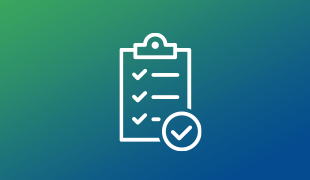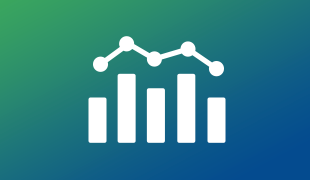Creditworthiness
Creditworthiness is your ability to repay any money that you borrow.
Creditworthiness is your ability to repay any money that you borrow.



Creditworthiness is your ability to repay any money that you borrow. Your credit score or credit rating, along with proof of spending habits and money management skills, determines your creditworthiness.
At Everyday Loans, we evaluate this usually by having a look at how you've managed past credit, debt, and monthly income and outgoings, as well as your ability to afford repayments.

Your credit profile is created from information held in your credit report.

ONS data is used in affordability calculations.

Open Banking promises to change the way we all manage our finances online

Your application with Everyday Loans
A credit score will typically be a three-digit number formed by data from your credit report. It is created from information in your credit report, also known as your credit file. The scoring range can vary between different credit reference agencies, so you should check with the agency you are using to see what your score means.
The information held on your credit file and in your application form might be used to decide the following:
The most recent information on your file is important, as lenders are most interested in your current financial situation. However, the last six years of your finances will still be on record.
If your credit report shows a few missed payments, you may be charged higher interest, or even refused a loan, due to being seen as a higher risk.
Your credit history can also affect whether you can get things like insurance or a new mobile phone contract.
Your credit score is created based on all the information contained in your credit report, such as credit accounts, balances due, and details of past payment history.
Lenders use your credit score to help determine your creditworthiness.
If we don’t do a proper assessment before we lend it can have serious consequences for us and you - especially if you fall into financial difficulties and cannot afford the debt repayments. As a responsible lender, we try to do everything possible to avoid this.
Creditworthiness is essential when you want to borrow money, but managing your finances well also has benefits like:
In line with FCA guidelines, we have created a staged approach to assessing your creditworthiness, tailored to your situation.
We look at what you are spending in relation to your income and your ability to manage your finances. This could include your credit score, whether you pay bills on time, and how you manage cash flow throughout the month.
We only ever lend responsibly, and for people with a lower disposable income after outgoings and who are requesting more credit at a higher rate, the level of scrutiny is even higher when deciding to lend.
But we also take the time to understand our customer's needs on a human level, which online processes and algorithms can miss.
So while we look at your credit history, we believe every customer should have a chance to build a brighter financial future.
We always carry out credit checks before approving any customer loans. This includes new applications or a top-up on an existing one.
You can improve your credit score – and therefore your credit profile – by taking these steps:
Your credit report is a summary of your financial history provided by a credit reference agency (CRA), which keeps financial information on adults in the UK.
The UK has three main agencies - Experian, Equifax, and TransUnion. Each shares information about your credit history with lenders like us – as well as mortgage providers, banks, and credit card companies - to help them decide whether they should lend you money.
You're legally entitled to a copy of your full credit report from each CRA:
To get the best overview of your credit history, get a report from all four. You'll be asked to provide your full name, current address, and any addresses you've lived at over the last six years.
Your credit report contains a range of personal information, including:
It also contains details of any debts you have, such as:
The credit report also contains other information supplied by the Insolvency Service and Registry Trust.
Negative information - such as late or missed payments, accounts sent to collection agencies or not being paid as agreed, or bankruptcies - stays on a credit reports for around six years.
First contact the source to report any incorrect information. They have a legal obligation to make sure all the info they pass on to their chosen Credit Reference Agency is correct and they should be able to make any changes quickly (where they agree an error has been made).
If this doesn't work you can contact the Credit Reference Agencies to challenge the information via a Notice of Dispute. This forces the CRA reporting the information to investigate. While this is being done, a marker will be added to your credit report to let other organisations know it's being disputed. Of course, there's no guarantee that the lender will agree, but at least it forces them to look into it again.
The Office of National Statistics (ONS) produces a report every year called Family Spending in the UK.
It provides information on average weekly household spending on goods and services in the UK – categorised by age, income, economic status, socioeconomic class, household composition, and region.
This information is freely available for anyone to download and use. Many lenders also use it as part of their application process, to check loan affordability.
The Financial Conduct Authority (FCA) allows statistical data – such as the ONS Family Spending in the UK report - to be used instead of customer-provided values.
At Everyday Loans, we always refer to all available data along with a face-to-face meeting with you in one of our branches, as part of our application review and approvals process.
We take the time to understand your needs on an individual basis which allows us to deliver highly responsible lending. This case-by-case approach means we can tailor each loan and ensure that it is easily affordable for you.
The data varies, but it can include comparing what you say you spend on food, for example, to the wider ONS stats.
If your ONS number is higher, a lender may take a 'worst-case scenario' approach and go with the higher amount. Or if your estimate is significantly lower than the ONS figures think is normal, they might choose to take the higher amount. Or they may use your info but flag the case for additional checks when it comes to underwriting.
Open Banking is already changing the way we manage our finances online.
You might have heard of some of the things it can make possible. Or it may be entirely new for you. We've answered some questions to help you understand Open Banking.
The UK Government introduced Open Banking in 2018 to encourage competition and innovation in the financial services sector. It lets you manage the financial data your bank or building society generates from your bank account, so you can use it safely and securely when applying for credit.
You can find out more about Open Banking at www.openbanking.org.uk.
You can use Open Banking to authorise your bank to securely share your financial history with regulated companies like Everyday Loans.
If you don't want to share this information, you don't need to do anything, as Open Banking requires consent.
At Everyday Loans, we support your choice to use Open Banking as it helps us make a more efficient and informed lending decision. It also provides a clearer view of creditworthiness than traditional credit scoring, as it uses the most accurate and current financial data provided directly by you.
Our people then use this information when they meet with you in your local branch.
By allowing Everyday Loans to view your bank or building society account information, we can make more informed lending decisions. It also means we can check your income and outgoings to assess which loan term and amount will best suit you. Using our Open Banking provider, Everyday Loans looks at all current financial commitments and what you can afford to borrow. We're a responsible lender, so we want to ensure all loans are affordable and manageable.
We look for information that proves that your spending does not regularly exceed your income. So we will consider bills - household, mobile, subscriptions, and rent for example - plus any loans, credit cards, car finance, and any other credit commitments you have. We also look for how often you use your overdraft. It's all about finding out whether you earn enough to cover your spending.
As part of your loan application, our selected Open Banking third-party provider provides you with a secure portal for requesting consent and connecting to your bank or building society.
Our Open Banking third-party provider will then provide us with info from your bank or building society to verify your income, outgoings, and creditworthiness.
Open Banking is entirely optional. You don't have to sign up if you don't want to use it. None of your current account or credit card information will be shared without your explicit consent. There is no ‘opt-out’ needed if you do not want to use the service.
Open Banking is very secure. As the owner of your data, you are the only person who can OK any connection between your bank and a regulated third party, and you never have to share your bank login details with anyone. You just use them to log in to your online banking as usual.
The FCA authorises a TPP to access information or give instructions to make payments from an account operated by a bank or building society, but only if the account holder has given the OK to do so.
It's entirely up to you whether you share any of this information in this way, but typically you would include:
Your application with Everyday Loans
The better your credit score, the more likely your loan application will be approved. Things such as previous credit applications or missed or late payments can hurt your credit score.
We will inform you by email or in writing if we cannot continue your loan application due to a search on your credit reference file. We recommend that you think very carefully before applying for more credit. Some credit applications – successful or not – may show up on your credit file. Several in a short time might make lenders think you're desperate for cash, which could further damage your credit rating. Your credit rating affects whether you can get credit and how much you can borrow. It can also affect the interest rate you might be charged. We can give outline feedback on why we decided to decline your application. You can also ask the credit reference agency for a copy of your file.
Your loan application will have been declined due to a poor credit profile. This means we have looked at your bank statements and spending habits and decided repayments would be unmanageable.
You should try to improve your credit profile and get better at managing your money day to day, which you'll be able to show through your bank statements.